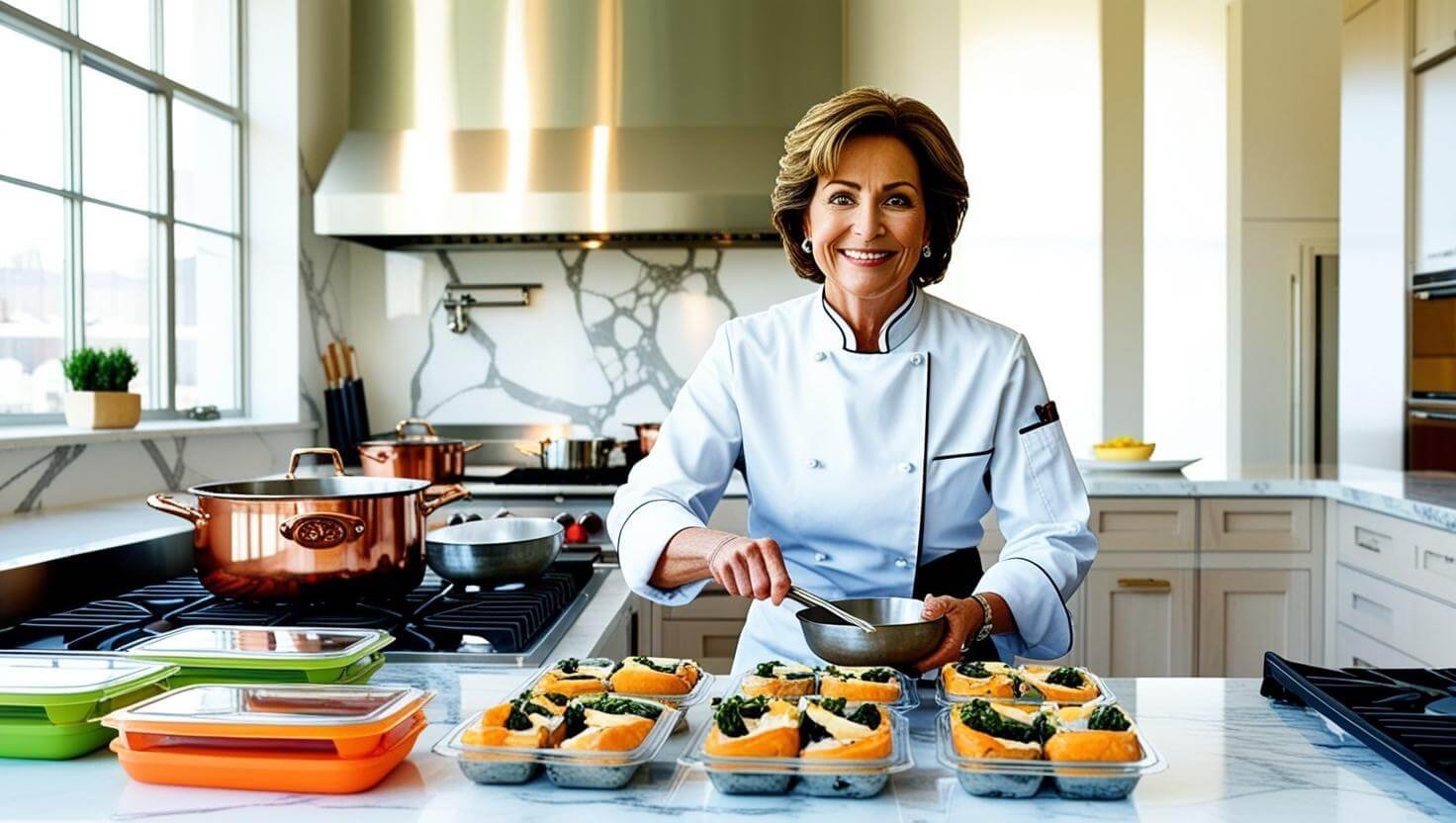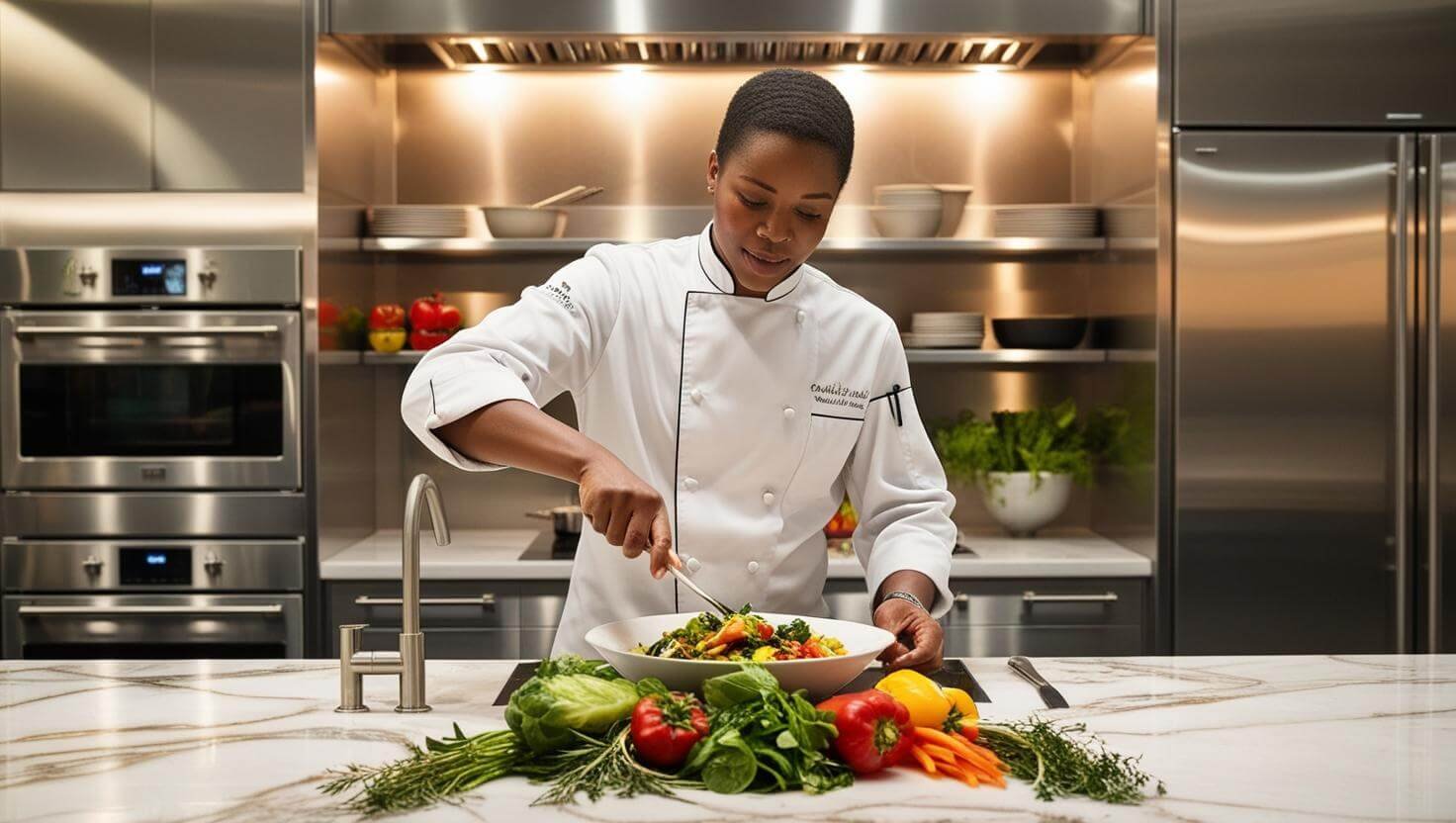Busy professionals have a lot on their plates—both figuratively and literally. If you’re juggling demanding schedules, family commitments, or just want to savor high-quality, personalized meals without spending hours in the kitchen, hiring a personal chef can be a game-changer.
A personal chef can save you time, reduce daily stress, and provide meals perfectly tailored to your preferences and dietary needs. But to truly maximize the benefits, building a strong and effective relationship with your chef is key.
This guide will walk you through how to form and nurture that partnership to ensure every meal becomes a delight.
Finding the Right Chef
Start with Your Needs
Before you begin searching for a personal chef, clarify your needs. Are you looking for specific dietary accommodations like keto or gluten-free meals? Do you need meals prepped weekly for the family or special one-off dinners? Create a checklist of your priorities—this can help narrow your search.
Key Considerations:
- Allergies or dietary restrictions in your household.
- Preferred cuisines or meal styles.
- How many meals you’d like prepared weekly or monthly.
Vet Qualifications and Compatibility
Finding someone skilled in the kitchen is just one part of the process. You’ll also want a chef whose personality and communication style matches yours.
Questions to ask during the hiring process might include:
- Where did they train, and what cuisines do they specialize in?
- Do they have experience in tailoring meals to specific needs or medical conditions?
- Can they provide reviews or references from past clients?
Platforms like PersonalChefFinder.com streamline this process, allowing you to connect directly with trusted chefs in your area based on your preferences.
Communication is Key
Discuss Preferences and Dietary Needs
Transparency is essential for a productive chef-client relationship. During your initial consultation, share detailed information about your tastes, family preferences, and dietary requirements. Don’t forget to mention any “pet peeves,” such as ingredients you dislike or any cooking odors you’d rather not linger in your home.
You might say something like, “We love Italian food, but we’d prefer lighter, vegetable-based pasta dishes without too much cream or cheese.”
Provide Feedback Regularly
Cooking is an art, and while your first few meals might be great, there’s always room for improvement. Be honest, kind, and constructive when offering feedback to help guide your chef toward hitting the perfect balance.
For instance:
- Loved the Thai curry they prepared last week? Mention it and ask for similar dishes.
- Felt the cheesecake was too rich? Share that feedback respectfully.
Open, consistent communication will only enhance your dining experience.
Setting Expectations
Agree on Menus, Schedules, and Costs
To avoid misunderstandings, establish clear expectations early in your relationship with your chef. Agree on the following details upfront:
- Menu Planning: Will the chef provide a menu for approval before cooking each week?
- Scheduling: Choose convenient days and times for food preparation. Your chef will need adequate kitchen access, so plan accordingly.
- Costs: Discuss and document service fees, grocery budgets, and whether additional costs (like particular premium ingredients) are included in their rate.
Outlining these details prevents confusion surrounding services and guarantees a smooth start to your arrangement.
Building Trust
Respect Their Expertise
Remember, you’ve hired your chef because they’re an expert. While your input is valuable, give them space to shine. Avoid micromanaging in the kitchen. You might be surprised by how they elevate your favorite dishes or introduce you to something entirely new.
Encourage Collaboration
If you do want changes, suggest them collaboratively. For instance, instead of saying, “This dish was too salty,” you could say, “This was good, but I prefer less salt next time.” This approach builds stronger mutual respect and
Flexibility and Adaptability
One of the keys to a successful relationship with your personal chef is remaining flexible and open to their suggestions. While it’s important to communicate your preferences, remember that meal preparation is often a creative and responsive process. Ingredients may not always be in season, or your chef might discover a market-fresh item that inspires an adjustment to the menu.
Allowing your chef the freedom to adapt recipes or techniques creates room for innovation. If a dish strays slightly from what you envisioned, treat it as an opportunity to try something new and exciting. You may find unexpected flavors or combinations you love.
On your end, try to stay adaptable to scheduling or logistical changes. Life happens—you might need to adjust kitchen access, reschedule cooking days, or modify portions if guests will be joining you. A little understanding and flexibility go a long way in maintaining a positive dynamic.
Additionally, stay open-minded about trying new cuisines or unfamiliar ingredients. One of the joys of working with a personal chef is that they can introduce you to experiences you might not have ventured into on your own. Trust their instincts—they could help you discover a new culinary favorite!
Celebrating Successes
When your chef nails your favorite dish or introduces a new recipe that becomes an instant hit, take the time to celebrate those wins. A simple compliment or a quick thank-you can make all the difference, solidifying the relationship and showing your appreciation for their hard work. Positive reinforcement is one of the best ways to encourage consistency and creativity.
Consider going beyond words and expressing your gratitude in practical ways. For instance, if your chef prepared meals for a special occasion or exceeded expectations in some way, a small token of thanks like a handwritten note or an unexpected bonus can be a meaningful gesture.
Engage in the celebration process together by sharing feedback with a joyful tone—“The salmon you made last week was incredible! It’s my new favorite” lets your chef know they’re doing a great job while also establishing a collaborative and upbeat environment.
Celebrating successes also offers an opportunity to note what’s working particularly well. If a certain style of menu planning or cooking method has been delivering consistent hits, build on that positive momentum to guide future meals.
Long-Term Partnership
A strong relationship with a personal chef thrives on mutual respect and a shared commitment to creating an enjoyable culinary experience over time. To build a long-term partnership, consider these tips:
- Review and Renew: Periodically review your arrangement to ensure everyone is on the same page. Are there new dietary goals to consider? Seasonal ingredients to focus on? Take these opportunities to refine and refresh your plans.
- Evolve Together: Over time, your tastes, dietary needs, or cooking preferences may change. Be sure to communicate these shifts promptly so your chef can adapt accordingly. Whether you’re training for a marathon, experimenting with a plant-based lifestyle, or simply looking to cut back on sugar, your chef can serve as an invaluable partner in these transitions.
- Show Respect for Boundaries: A long-term partnership is also about maintaining professionalism. Respect your chef’s time and expertise by avoiding last-minute changes unless absolutely necessary. Likewise, remember their work doesn’t end in your kitchen—it includes menu planning, ingredient sourcing, and sometimes cleanup. Acknowledge this effort to keep things running smoothly.
- Build a Connection: Establish a rapport that extends beyond the meals. Take an interest in their passion for cooking or ask about their favorite dishes to make. Simple camaraderie can provide a more enjoyable working relationship for both parties.
Ultimately, a strong client-chef relationship is a two-way street. Clear communication, mutual trust, and shared respect make all the difference. By investing in this partnership, you not only gain exceptional meals but also create a seamless, rewarding experience that adds ease and luxury to your daily life. With the right approach, your collaboration can become a long-term success story—an ongoing celebration of great food and shared goals that benefits everyone at the table.









